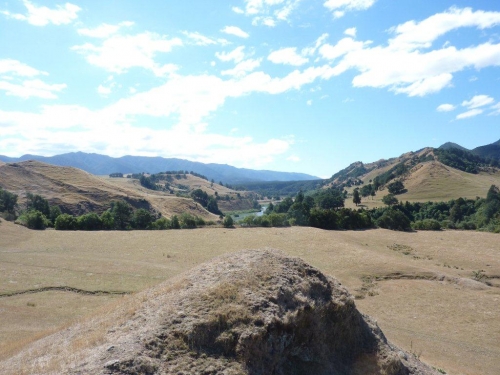I want to...
Current filter: Most popular
A to Z
Apply for a job
Biosecurity
Consents
Consultation
Contact Us
Environmental Data
Farmers Hub
Fix it or Report it
Information Request
Join an Event
Leasehold Land
Meetings
Rates
Water Metering
Have Your Say
Ruataniwha Scheme and Plan Change work hand and hand
Published: 5 May 2016

Hawke’s Bay Regional Council Chairman Fenton Wilson says many people have lost sight of the important connection between the Ruataniwha Water Storage Scheme and the Council’s Tukituki Plan Change.
The Scheme and the Plan Change form part of a wider programme to better manage water resources in the Tukituki Catchment and improve the Tukituki River.
Mr Wilson says in dry summer months the Tukituki catchment and in particular the Tukituki River’s main-stem suffer water shortage and water quality issues.
“These issues are exacerbated by existing land-use practices, including surface water and ground water abstraction for irrigation, and nutrient imbalances driven by on farm nutrient and sediment loss. Urban wastewater also contributes to the nutrient imbalance issue,” says Mr Wilson.
He says the most visible consequence of these issues is excess algal growth in summer low flows in parts of the river system, which have high recreational values. In some streams and rare wetlands aquatic habitat is also compromised.
Mr Wilson says the Tukituki Plan Change has been developed with the aim of addressing the environmental issues in the catchment, but it will impose greater restrictions on existing farms in the catchment through requiring more water being left in the river so less available for irrigation and more stringent nutrient limits to help limit algal growth in the river.
“When you view the Ruataniwha Scheme through an environmental lens it is part of a combined regulatory and infrastructure strategy designed to systematically improve the Tukituki River, related streams and wetlands. That has always been the goal of the Plan Change together with the Scheme.”
He says the Ruataniwha Water Storage Scheme is designed to fit within the overarching regulatory framework and complement it in a number of ways including providing ‘flushing flows’ to help remove algae from the river, migrating groundwater takes to stored water, and delivering freshwater into degraded streams.
Mr Wilson says the Ruataniwha Scheme consents require farms supplied water by the scheme to develop farm environmental management plans to ensure nutrient and sediment issues instream are stringently controlled. The consents also require the monitoring, assessing and managing of the Scheme’s environmental performance transparently and proactively.
“I am confident that together the Plan Change and the Ruataniwha Scheme will provide a win-win situation for our region, improving the quality and quantity of water in the Tukituki River, giving farmers a secure water source for their farming operations and injecting more money into our local economy.”
Mr Wilson says the reality is without the Ruataniwha Scheme the Tukituki Catchment won’t receive the range of environmental benefits the Scheme provides and the local Hawke’s Bay economy will miss out on the major economic boost it so desperately needs.
Media contact
Helen Shea, Communications Specialist|P 06 833 8085, 027 662 5953
Susan Wylie, Senior Communications Coordinator|P 06 835 9208, 027 256 8549
Disclaimers and Copyright
While every endeavour has been taken by the Hawke's Bay Regional Council to ensure that the information on this website is
accurate and up to date, Hawke's Bay Regional Council shall not be liable for any loss suffered through the use, directly or indirectly, of information on this website. Information contained has been assembled in good faith.
Some of the information available in this site is from the New Zealand Public domain and supplied by relevant
government agencies. Hawke's Bay Regional Council cannot accept any liability for its accuracy or content.
Portions of the information and material on this site, including data, pages, documents, online
graphics and images are protected by copyright, unless specifically notified to the contrary. Externally sourced
information or material is copyright to the respective provider.
© Hawke's Bay Regional Council - www.hbrc.govt.nz / +64 6 835 9200 / info@hbrc.govt.nz


